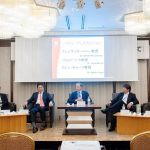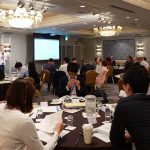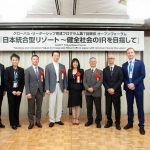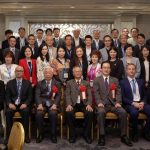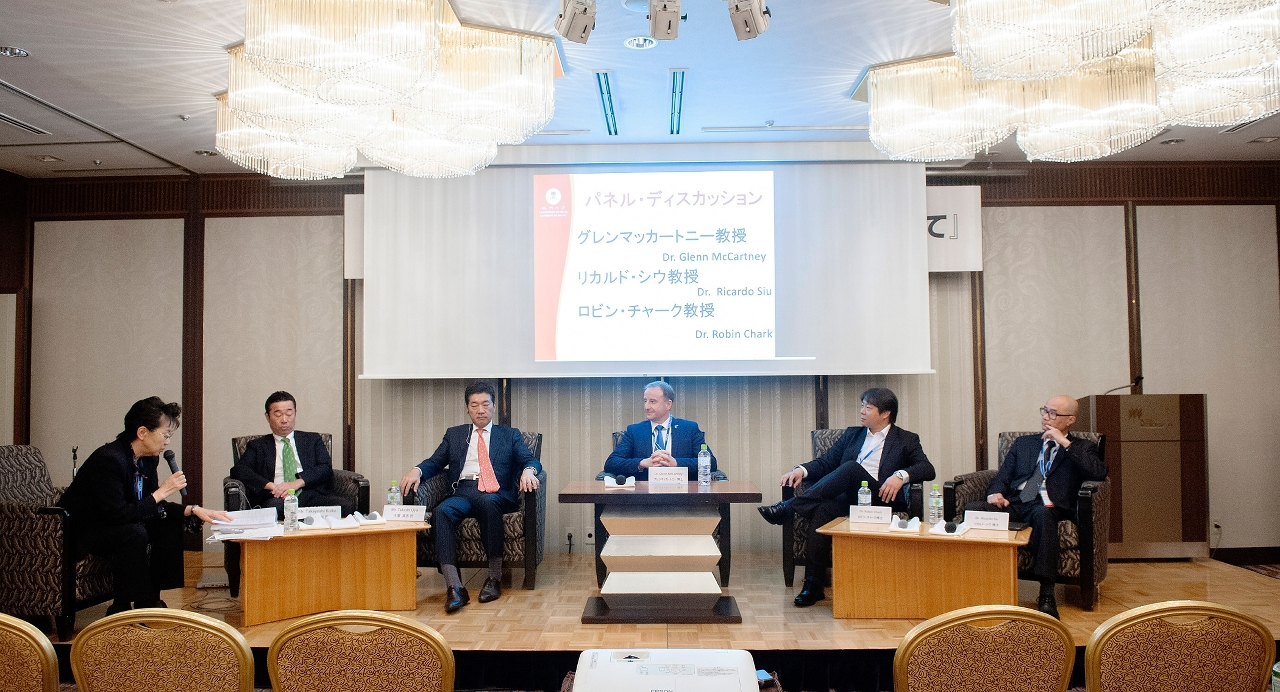 Experts and scholars exchange ideas
Experts and scholars exchange ideas
The seventh module of the Global Leadership Development Programme (GLDP), jointly organised by the University of Macau’s (UM) Asia-Pacific Academy of Economics and Management ( APAEM) and Rikkyo University in Japan, was successfully held in Tokyo recently. The programme attracted more than 50 senior executives from Macao, Japan, and Europe.
The opening ceremony was held in Hotel Metropolitan Tokyo Ikebukuro and was hosted by Prof Shigemi Furuta, programme director of the APAEM. Officiating guests at the ceremony included Mr Susumu Ishihara, chairman of Kyushu Tourism Promotion Organisation, co-organiser of the fifth module in 2018, and advisor to the APAEM ; Prof Kwak Yangchoon, president of Rikkyo University; and Prof Jacky So, director of the APAEM.
Prof Jacky So said in his speech that the fifth module of the programme took place in Nagasaki, Japan last year, staged in the midst of the legalisation of the integrated resorts bill (IR Bill) in Japan. He said he was happy to be in Japan again one year after the IR Bill was enacted and the preparation of IR development began in earnest. He said UM took the opportunity to return to Japan and organised the seventh module in Tokyo, partnering with Rikkyo University, which is Japan’s best university in the field of tourism education. Prof So said the programme was synchronised with the development of integrated resorts in Japan and UM professors were happy to share Macao’s experience and their knowledge in integrated resorts with Japan.The programme also aimed to promote cultural and academic exchange, and to nurture more senior executives for the integrated resorts industry.
The theme of the seventh module was ‘Innovation, Strategy for Japan IR with Minimum Social Disruption’. The four-day module focused on the current development of integrated resorts in Japan. It included five seminars, a group presentation, a field trip, and an open forum. Prof Glenn James McCartney, associate dean (curriculum & teaching) of UM’s Faculty of Business Administration; Prof Ricardo Siu, associate professor from the FBA; and Prof Robin Chark, interim head of the Department of Integrated Resort and Tourism Management of the FBA, were the keynote speakers. They shared theoretical knowledge about both gaming and non-gaming management, applied economics for the leisure industry, as well as gaming psychology and responsible gaming. In addition, participants went on a field trip to the Tokyo Disney Resort to learn more about crisis management and the management model of a large entertainment complex like the Disney Resort.
This year’s programme included a new feature, the IR Open Forum, which was open to the public. It attracted more than 200 people from Japan. The keynote speaker in the forum was Mr Naoya Haraikawa, councilor of the Tourism Agency of the Ministry of Land, Infrastructure, Transportation, and Tourism. Following Mr Haraikawa’s speech, Ms Akiko Takahashi, executive vice president, chief of staff to chairman, and CEO of Melco Resorts and Entertainment; and Mr Ted Chan, chief operating officer of Japan Development at Galaxy Entertainment Group Ltd, introduced responsible gaming and corporate social responsibility of integrated resorts operators in Macao. As a panel, professors from UM had an in-depth discussion with two Japanese specialists in the field, Mr Takayoshi Koike and Mr Takashi Oya, on how to maintain a healthy integrated resorts industry by minimising social disruption.
In the forum, UM scholars emphasised that risk and certain negative effects on society are inevitable while the development of the gaming industry and integrated resorts can help create a new atmosphere for the Japanese economy and community. Therefore, devising strategies to deal with the risks and improving the regulatory system should be the primary task of Japan.


